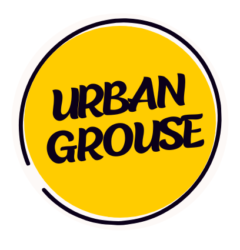Blockchain in waste management? Sure! Why the hell not! Here’s what we need to do to incentivize citizens with a rewards program and for the hell of it validated on a blockchain to motivate us the people to manage waste at the source and dispose of it safely after segregation:
- Establish a Blockchain-Based Rewards Program:
- Develop a blockchain-based rewards program specifically designed for waste management.
- Create a digital token that can be earned by citizens who actively participate in waste management activities, such as segregation, recycling, and proper disposal.
- Use a transparent and decentralized blockchain platform to ensure the security and immutability of the reward transactions.
- Citizen Registration:
- Set up a user-friendly online platform and mobile app for citizens to register for the rewards program. I am certain that our Infopark talent can execute this.
- Collect necessary information such as name, address, and contact details during the registration process.
- Verify the identity of citizens to prevent fraudulent activities and ensure fairness in the rewards distribution.
- Educational Campaigns:
- Conduct comprehensive awareness campaigns to educate citizens about the importance of waste management, source segregation, recycling, and safe disposal practices.
- Provide detailed guidelines and tutorials on how to participate in the rewards program and earn tokens.
- Promote the benefits of sustainable waste management practices, both for the environment and for individual participants who can earn rewards.
- Waste Segregation and Collection:
- Implement a well-defined waste segregation system with clearly labeled bins for different types of waste, such as biodegradable, non-biodegradable, and recyclable materials.
- Establish a regular waste collection schedule, ensuring that the collected waste is properly sorted and disposed of in an environmentally friendly manner.
- Use blockchain technology to track the waste collection process, ensuring transparency and accountability.
- Blockchain-Based Validation:
- Integrate IoT devices or mobile apps with the blockchain platform to validate citizens’ participation in waste management activities.
- IoT devices can track and record data such as the weight or volume of waste segregated, recycled, or safely disposed of by individual participants.
- Smart contracts on the blockchain can automatically verify the completion of specific waste management tasks and trigger the distribution of rewards accordingly.
- Reward Distribution:
- Allocate a specific number of tokens for each waste management task, such as proper segregation, recycling, or safe disposal.
- Determine a fair conversion rate between tokens and local currency or other tangible rewards.
- Distribute the earned tokens to participants’ digital wallets on the blockchain platform once the waste management tasks are validated.
- Provide options for participants to redeem tokens for various rewards, including discounts at local businesses, utility bill credits, eco-friendly products, or donations to environmental causes.
- Monitoring and Reporting:
- Continuously monitor and analyze data collected from waste management activities to identify participation patterns, areas of improvement, and overall program effectiveness.
- Generate regular reports on waste management metrics, such as the amount of waste recycled, reduction in landfill waste, or carbon footprint reduction.
- Share progress reports with participants to keep them engaged and informed about the collective impact of their efforts.
- Collaboration and Partnerships:
- Collaborate with local authorities, waste management agencies, NGOs, and businesses to support and promote the rewards program.
- Seek partnerships with recycling centers, composting facilities, and waste management service providers to streamline the collection and processing of recycled materials.
- Engage local businesses to offer exclusive discounts or deals to participants, encouraging them to patronize eco-friendly products and services.
- Continuous Engagement and Gamification:
- Implement gamification elements within the rewards program to make waste management activities more engaging and enjoyable.
- Introduce challenges, leaderboards, and milestones that participants can strive to achieve, earning additional rewards and recognition.
- Organize community events, competitions, or workshops related to waste management to foster a sense of community and inspire.
I have used information extensively from internet sources to bring together this article. Kerala will have to wait for a very long, long time before we see blockchain technologies in e-governance or even waste management. Do we have any leader who can take up this challenge??

Leave a Reply